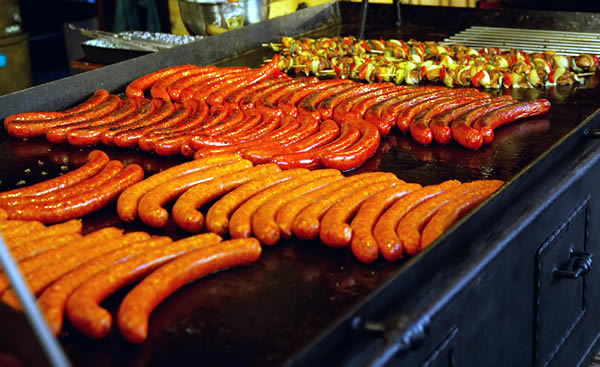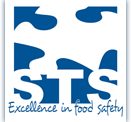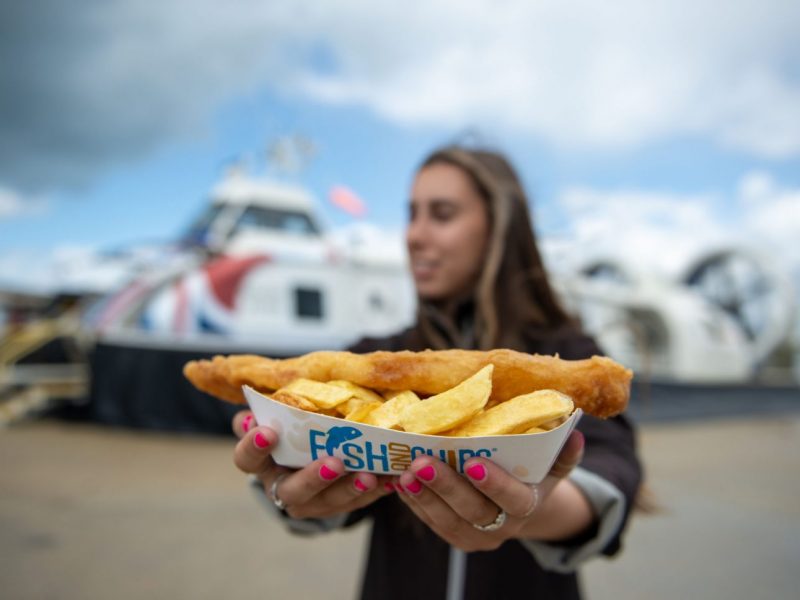The perils of running a pop-up catering operation

Mike Williams
Don’t let food poisoning be the gift you give this Christmas
With many fast food businesses looking to extend their operations and capitalise on the popularity of Christmas and farmers’ markets during the festive season, we asked Mike Williams from food safety specialists STS to discuss some of the main legislative, food safety and hygiene issues which businesses should be aware of.

Many well established food retailing businesses consider seasonal pop-up catering operations as a way of reaching out to new customers, capitalising on a captive audience, diversifying their operation and potentially increasing profits. However, even with their vast expertise, equipment, access to ingredients and staff, quite a few don’t succeed in this highly competitive part of the industry. Don’t be fooled into thinking that you can simply turn up, put in a few hours of effort and walk away with a profit. Rigorous attention to detail, forward planning and hard word are all vital if you want to succeed.
A pop-up or casual stall is still essentially a new business in the eyes of environmental health even if it is only going to operate for a single day. It’s vital that you comply with all food hygiene regulations and this starts with you registering the new operation with the environmental health service at your local council at least 28-days before you begin trading. This applies even if you’re already operating another registered food business. You’ll also be required to document all the necessary food safety management procedures that you have for the pop-up operation, based on the principles of HACCP (Hazard Analysis Critical Control Point).

Pop-up food stalls come under close scrutiny from environmental health as their lack of space and facilities mean that cross contamination, allergen control and general food safety can sometimes be difficult. Lack of space is not an excuse when it comes to food hygiene and you’ll also find that where customers can see the total operation they are more critical about food hygiene standards. If they see something untoward they simply won’t buy from you. Poor standards could also badly reflect on your main business so it is imperative that all the usual precautions are taken and that your business conforms to all current food hygiene requirements, including:
- Cooking temperatures: Ensure food is cooked to a core temperature of 75°C or above, using a food probe to check, so that harmful bacteria are destroyed.
- Hand washing: Make sure you have facilities that allow staff to regularly wash their hands properly. Don’t just rely on antibacterial hand gels; EHO’s will pull you up for this as they don’t effectively wash hands.
- Food control: Keep all food appropriately chilled before cooking: typically 5°C or below. Ensure clear segregation between cooked and uncooked food, and use separate working surfaces and utensils for each. Keep the time between cooking and serving food to a minimum. Regular cleaning is also important and you should factor in an appropriate control for all waste, including effective disposal.
- Allergen Control: You have a duty to train staff and inform customers about any dishes that may contain one or more of the 14 food allergens. These include eggs, peanuts, milk and many types of shellfish but the less commonly known ones include celery, mustard, cereals containing gluten, and lupin which includes lupin seeds and flour that can be found in types of bread, pastries and pasta.
- Cleanliness: Pop up kitchens are no different from permanent commercial kitchens when it comes to cleanliness. Make sure that you have a good supply of cleaning chemicals and equipment available at all times and a supply of clean disposable hand towels.
- Cross contamination: Separate knives, cutting boards, utensils, pans, plates etc. should all be used, even in what is often a confined space.
- Health and safety processes: You must ensure the safety of all employees and customers at all times. This can range from the conditions in which they work to the colour of the plasters used.
Some of the more general factors which need to be taken into consideration before setting up a pop-up restaurant or food stall include logistics; how you transport food and specialist equipment etc. It isn’t simply a matter of throwing a BBQ or wok in the back of a van, grabbing a pack of burgers and other ingredients, some paper plates and napkins and setting up shop!
In addition to registering the operation with the local council and complying with local licensing laws for each location in which you plan to operate, you may also need late night licences; one for the sale of alcohol, live music or entertainment and even potentially a licence from the landowner. You should also factor in additional public and personal liability insurance along with employers insurance if you hire staff (even for just one day), along with theft or fire insurance. Specialist vehicle insurance may also be required and you’ll need to consider how you transport food, what specialist equipment may be needed and where everything is stored when not being used.
There is so much to be considered when looking to operate a pop-up kitchen or food stall but it can be an excellent way to raise your profile and profit margin while reaching new customers but food safety should be your prime concern. The last thing you want is to be prosecuted or cause your customers to become sick or even die as we saw recently – that case resulted in a hefty fine and a custodial sentence. This is why there are strict legislative and food safety standards that need to be observed in order to stay on the right side of the law.
 For more information and advice on running a pop-up operation and to ensure you have the correct processes in place and that they are up-to-date, seek advice from your local authority or an independent health & safety organisation such as STS. They can be contacted on 01252 728300 or via their website at www.sts-solutions.co.uk or www.elas.uk.com.
For more information and advice on running a pop-up operation and to ensure you have the correct processes in place and that they are up-to-date, seek advice from your local authority or an independent health & safety organisation such as STS. They can be contacted on 01252 728300 or via their website at www.sts-solutions.co.uk or www.elas.uk.com.





